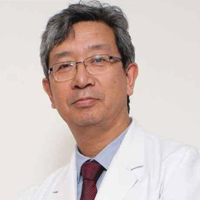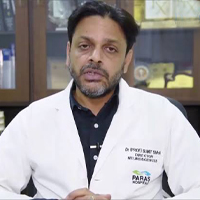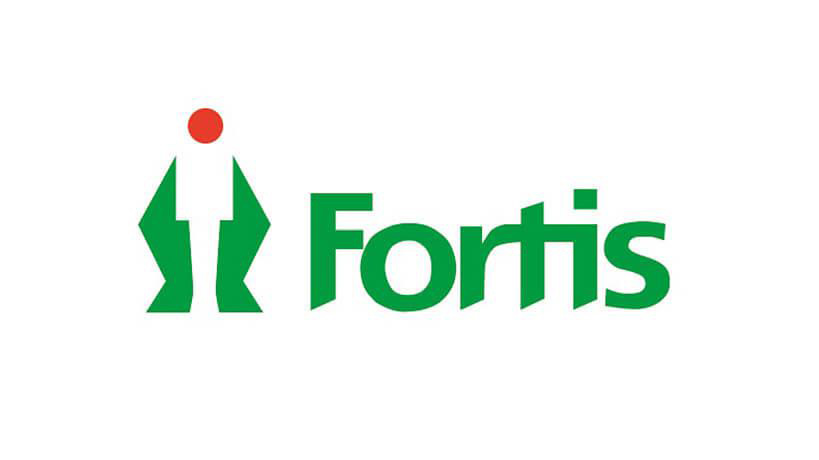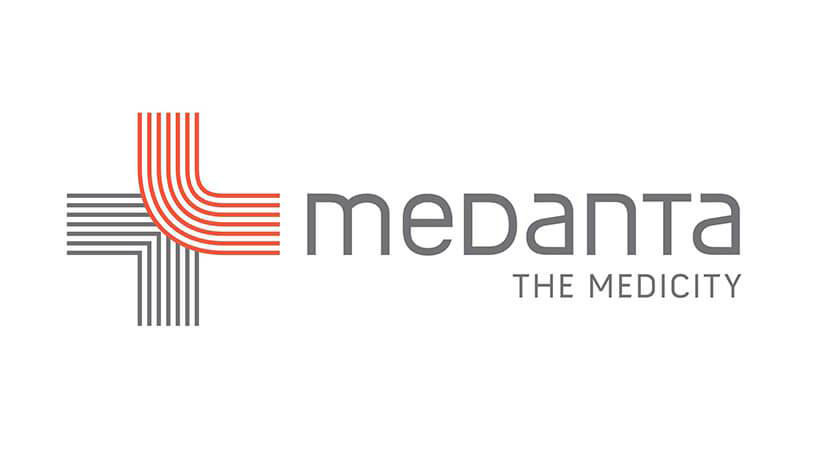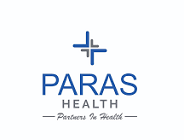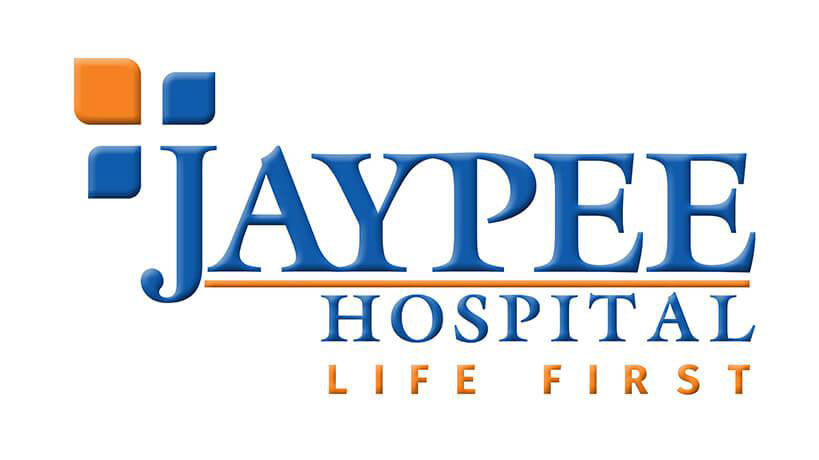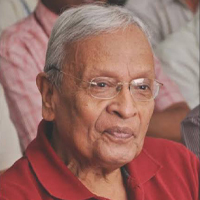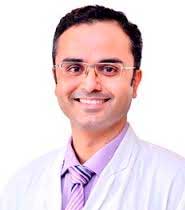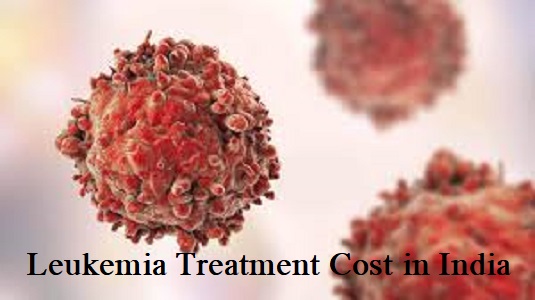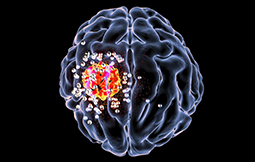
Get Free Treatment Plan From Top Hospital
Attach Medical Report
Brain Tumor Surgery – Symptoms, Types, Diagnosis, Risk and Recovery
Embarking on a journey through the intricate realm of medical complexities, we come across brain tumours—the subjects that hold immense intricacy and potential to alter lives. This article aims to explore everything about brain tumours. By shedding light on these challenges, we will tell you everything you should know about brain tumour surgery in India. Al Afiya medi Tour guides you through the treatment for brain tumours and also helps you assess your approach in a customised way. The treatment plan for brain tumours depends on its type, grade and location, how far it has spread (metastasised), age, and general health status. Treatment may involve surgery, radiation therapy and chemotherapy as appropriate.
A brain tumour is the abnormal growth of the cells in brain tissue. It can occur anywhere within the brain in the brain tissue or in the vicinity of the brain. The parts of the brain would include the cerebrum, cerebellar area and medullary area. The vicinity of the brain includes the master gland- the pituitary gland, the pineal gland, and the meninges cover the envelope brain and spinal cord. Symptoms for brain tumour varies according to their position, the area affected and the
Surgery is often the first choice when treating a brain tumour, as its purpose is to safely extract as much of the growth as possible without harming essential brain tissue. A neurosurgeon makes an opening in your skull to operate and may need to remove part of the bone surrounding it for easier access. Your doctor might try stereotactic radiosurgery on all or some parts of the tumour using high-energy beams aimed from various directions to kill off tumour cells while sparing healthy brain tissue from harm. However, your physician might choose instead to remove small portions if near areas which control movement or coordination.
A biopsy may involve extracting a tumour sample with a needle (biopsy). You will not feel this procedure, as the medication will numb the area and put you into a sleep-like state. A neurosurgeon guides this needle using images from an MRI or CT scan; once removed, its tissue will be tested at a laboratory to identify what substances make up its composition and any changes.
Your biopsy results help your team develop an appropriate treatment plan. If the tumour is cancerous, these tests can reveal its rate of growth as well as any changes to its genes – known as tumour markers. Other tests may identify genetic mutations which are specific to certain forms of brain tumours.
Radiation therapy uses X-rays, radiofrequency waves or gamma rays to kill cancer cells and slow their growth before or after surgery. Treatment centres across India offer this service, and help is available to cover accommodation and transportation costs associated with travelling for treatment.
Brain Tumour Types
There are more than forty kinds of brain cancer, also called central nervous system cancer. These range from primary tumours that start within the brain and spinal cord to metastatic brain tumours that spread from other areas of the body directly to it. Most brain tumours are benign; however, some can become malignant and lead to serious health issues.
Brain tumours form when certain genes in your cells malfunction and no longer regulate how fast or slow cells grow, when to multiply or die, and which other genes to use. Mutations arising from such gene changes could increase your risk for diseases such as brain tumours; however, scientists still haven’t pinpointed what caused these mutations.
When a brain tumour forms, it can quickly grow to place pressure on surrounding tissues or nerves, resulting in symptoms like headaches, nausea and vomiting, vision problems or vision impairment. A tumour may also increase fluid in your skull, leading to raised intracranial pressure – another important reason why seeing your GP as soon as you experience new or worsening headaches should be prioritised, particularly if they wake you up during the night or cause nausea or diarrhoea.
Brain tumours can appear anywhere on the brain or spine. Gliomas are among the most prevalent varieties, growing from nerve cells. Other types include hemangioblastomas from blood vessels, oligodendrogliomas formed from insulation cells around wiring within the brain and nerves, and schwannomas which develop along nerves.
Children are at greater risk of brain tumours than adults, particularly medulloblastomas and astrocytomas, which tend to form in the lower part of the brain that controls sleep functions and movement. Teenagers, on the other hand, tend to be affected less. Children diagnosed with brain tumours have different perspectives than adults when dealing with them – more likely experiencing behavioural or learning disabilities due to treatment than vice versa.
Different types of brain tumours:
Gliomas
Gliomas are tumours that begin in glial cells that support nerve cells that control movement, speech, thinking and other brain functions. Gliomas most frequently form on cerebral hemispheres near the outer edges of the cerebral cortex. Still, they may also start in other regions, such as the cerebellum, that manages balance and non-thinking functions.
Most gliomas are slow-growing tumours; however, some can rapidly progress into higher grades. Doctors determine this grade by viewing samples of tumour cells under a microscope.
Surgery is usually the primary approach to treating brain tumours, with surgeons using craniotomies (a cut made in the skull to remove the tumour) to access and extract it. Imaging techniques and intraoperative mapping help guide these procedures; radiation therapy or chemotherapy may also be recommended as additional therapies.
Metastatic Brain Tumour
Metastatic brain tumours arise when cancer cells migrate from another primary cancer in one part of the body to spread to the brain as metastases (cancer cells that travel). They can manifest as one large tumour or multiple mini-tumours; almost any systemic cancer may metastasise to the brain, though lung, breast, colon/gastrointestinal and skin (melanoma) cancers tend to do this more commonly than others.
Metastases spread, exerting pressure and changing the function of surrounding brain tissue, leading to symptoms like headache, numbness/weakness, changes in personality or behaviour and seizures. Their exact cause depends on where in the brain the metastasis has spread to.
Penn doctors employ various treatment approaches for brain metastases, including surgery, radiation therapy (whole brain and stereotactic radiosurgery), chemotherapy and combinations as treatments.
Meningioma
Meningiomas are benign (grade 1) tumours originating in the meninges, the protective membrane that encases the brain and spinal cord. As they usually progress slowly, symptoms include headaches, vision changes, balance issues and memory problems.
Some meningiomas can be more complex to remove due to their location near vital nerves and blood vessels on the skull base. When treating these tumours, an experienced neurosurgeon in skull base surgery may be needed for removal.
A biopsy may be necessary to obtain a small tissue sample and have it examined by a neuropathologist to establish a diagnosis, determine whether or not a meningioma is malignant or benign and assign its grade. In certain instances, monitoring low-grade meningiomas with regular MRI scans may be preferable for future growth.
Medulloblastoma
Medulloblastomas are tumours that begin in the cerebellum, located below the brainstem at the back of the head. Medulloblastomas are among the most prevalent high-grade childhood brain tumours and may also develop in adults.
Most patients diagnosed with medulloblastoma will undergo further treatments such as surgery, chemotherapy and radiation to the brain and spine. Clinical trials for new therapies may also be an option. Your team of specialist doctors and nurses will devise a personalised plan and manage any symptoms you experience; medicines or supportive therapies may help relieve them during and after your main treatments have concluded.
Pituitary Adenomas
The pituitary gland, located within your brain, produces hormones that regulate how other glands produce hormones in your body and controls your blood pressure, blood sugar levels and growth. Most pituitary adenomas are benign tumours which typically grow slowly with symptoms depending on which hormone they produce.
Prolactinomas (tumours that produce too much prolactin) can produce various symptoms, including breast growth in men, excessive sweating, high blood pressure and weight gain. Adrenocorticotropic hormone (ACTH)-producing tumours – more prevalent among women – can produce Cushing’s disease with symptoms that include: weight gain; an enlarging fatty hump between shoulders; excessive skin; high blood pressure; diabetes, and even bruising from low blood calcium.
Stereotactic radiosurgery uses a rigid frame to hold your head still, while an automated machine delivers radiation directly onto the tumour site.
Brain Tumour Symptoms
Brain tumours may lead to various symptoms. These are caused by either their pressure on the surrounding nerve cells or how it alters your mind.
Headaches
Headaches are:
Often the initial symptoms experienced by brain tumour patients are due to pressure exerted by growing tumours on pain-sensitive blood vessels or nerves in their brains. An accumulation of cerebrospinal fluid (which coats and cushions the brain and spinal cord) leads to increased intracranial pressure.
These headaches differ from tension or migraine headaches because they tend to be dull and persistent, often worsened by coughing or swelling during a bowel movement (Valsova manoeuvre).
Headaches can be difficult to differentiate from other headaches, like migraines. If your symptoms seem new or have changed significantly, consult your physician immediately.
Seizures
Brain tumours may cause seizures if the tumour takes up too much space, causes brain swelling or blocks the flow of cerebrospinal fluid around your brain. They could also result from the tumour releasing hormones that alter your body’s functions.
Seizures can be especially serious if they spread throughout your brain, start from one area, and then spread elsewhere. Such seizures may result in uncontrollable arm and leg jerks and frightening behaviour for witnesses.
Your doctor will take a complete history and order tests to rule out brain tumours, such as CT/MRI scans to measure its size and check if it has grown faster than usual.
Cognitive and Personality Changes
Anticonvulsant medications may be recommended for brain tumours that cannot be surgically removed to control seizures and relieve symptoms caused by pressure from the tumour on crucial brain parts.
People living with brain tumours can often experience changes in their mood and personality. They may become easily irritable and have difficulty focusing while finding it hard to plan or remember things due to the tumour or treatments such as surgery, radiation therapy or chemotherapy.
Personality and mood changes may indicate many conditions, so you must discuss them with your loved one’s healthcare team to ascertain which quality-of-life goals are essential and how best to address their side effects.
Vision and Hearing Problems
Brain tumours located near the optic nerve or in the occipital lobe can result in vision changes caused by pressure on the optic nerve or swelling of its disc (back of the eye) called papilledema.
Tumours may also interfere with your balance and vision, leading to numbness or weakness in one side or part of the body. Furthermore, they may disrupt your normal sleep pattern, leaving you tired or not sleeping well at night.
Brain tumours may be either benign or malignant. Their risk depends on several factors, including grade and growth rate and whether or not it has spread beyond the brain; how much of it was surgically removed may also influence its future recurrence.
Motor and Coordination Issues
Brain tumours may also alter your movement patterns by pressing on or damaging nerve tissue or altering the chemical balance within your body that regulates coordination, and movement.
If you experience these symptoms, visiting a GP immediately is vital. They will conduct a comprehensive examination, testing your reflexes, balance and coordination, and ability to feel pinpricks and hot and cold temperatures.
Some individuals develop brain tumours due to genetic conditions like neurofibromatosis, Von Hippel-Lindau disease and Li-Fraumeni syndrome. Other instances may result from an alteration in genes which normally control how cells grow or repair themselves – this may occur through mutations or rearrangement of chromosomes.
Brain Tumour: Treatment Options
Your doctor will conduct tests to examine the type and size of your brain tumour and whether it is cancerous.
Your healthcare provider may suggest performing a biopsy (removing small pieces of tissue to examine under a microscope) or a spinal tap (lumbar puncture). They might also order special tests to measure your blood pressure or cerebrospinal fluid.
Surgery
A doctor removes and tests a tissue sample in a lab to ascertain if and how rapidly a tumour grows, providing valuable insight for healthcare teams creating treatment plans.
Radiation therapy may help shrink tumours and ease symptoms by using radiation to destroy healthy brain tissue rather than harmful X-rays, often combined with surgery or chemotherapy treatments. A newer form of radiation known as proton beam therapy uses protons instead, which might impact healthy tissue less than conventional radiation methods.
Chemotherapy is used to kill cancer cells and reduce tumour numbers. Unfortunately, the blood-brain barrier prevents certain chemotherapy drugs from reaching tumours, so researchers are exploring strategies for increasing its effectiveness against brain tumours – adding genes directly into chemotherapy drugs or using delivery systems such as wafers with antiviral medication to deliver medication directly into tumours are all examples of ways that could increase the effectiveness of therapy for brain tumours.
Radiation Therapy
Radiation therapy is one of the best treatment options to get brain tumour treatment without surgery in India. Radiation therapy uses high-energy beams of X-rays, gamma rays or protons to destroy brain tumour cells and shrink the tumour. Radiation may be directed at one location (stereotactic radiosurgery or Gamma Knife) or multiple sites around the brain (whole-brain radiation).
Your doctor often uses steroids before and after radiation to reduce brain swelling and anticonvulsant medications to help prevent or control seizures.
Drugs for treating brain tumours may be taken orally, via injection into a blood vessel or muscle, or directly into the cerebrospinal fluid. A type of chemotherapy known as immunotherapy can stimulate your immune system to attack cancerous cells more effectively – immunotherapy trials may also be available as part of clinical trials for benign tumours that do not spread or grow rapidly and don’t need treatment.
Chemotherapy
Chemotherapy may be necessary in the case of malignant brain tumours to destroy any remaining cancerous cells or prevent their recurrence, either alone or combined with surgery and radiation therapy treatments.
Some drugs, like temozolomide, are more effective at crossing the blood-brain barrier to target and destroy brain tumour cells than others. As chemotherapy for brain tumours usually comes in cycles with breaks between treatment cycles, you’d take these medicines for short periods each week for up to six cycles before having a gap between each treatment process.
Some medications can help control the side effects of chemotherapy for brain tumours, including dexamethasone (Decadron) to reduce fluid buildup and swelling and famotidine or pantoprazole (Pepcid or Protonix) to lower stomach acid. Your physician can discuss both risks and benefits associated with each drug.
Targeted Therapy
Your doctor can test a small piece of the tumour to assess its cancer cells and how quickly they’re growing, giving them vital information to create a treatment plan for you.
Chemotherapy uses medications to slow or kill cancer cells and stop them from returning orally or intravenously (IV). Your physician may also recommend chemotherapy treatment before, during, or after surgery or radiation to kill additional tumour cells.
Tumour-treating fields use painless electrical pulses to disrupt the growth of brain tumour cells and make them more sensitive to radiotherapy, helping reduce both their size and the necessity for surgery. This therapy may help decrease surgery requirements.
Depending on the nature of your brain tumour, a shunt may be required to drain excess cerebrospinal fluid. Your physician can surgically insert a tube into one or more ventricles in your brain or administer a medication called Mannitol to reduce pressure within your skull.
Clinical Trials for rare types
Brain tumour treatments vary depending on size, type, location and genetic makeup. Your specialist will suggest an individualised plan that could include surgery, radiation therapy, chemotherapy treatment, or any combination thereof.
MRI or CT scans may help detect brain tumours, while magnetic resonance perfusion testing (MRP) measures blood flow within your brain to assess how active a tumour may be.
Clinical trials are an integral component of finding new cancer treatments for rare types. These studies evaluate the safety of new drugs or combinations of treatments or ways of administering them and assess any side effects or concerns that arise during trials. We offer centres that provide and ha e capacity to take complicated and rare cases for the best clinical trial and the best neurosurgeons for brain tumour surgery. At our centre, in addition to traditional clinical trials, we also offer observational studies for those living with brain tumours; these gather data without testing specific therapies directly.
Brain Tumour: Risk & Complications
Here are the following risk and complications of brain tumours:
The Spectrum of Risks
While the reasons behind brain tumours may be difficult to catch, researchers have identified several risk factors. Age can influence one’s susceptibility, with certain age groups being more prone to specific brain tumours. In some cases, genetic predisposition plays a role, as rare genetic syndromes increase the chances of developing these tumours. Additionally, exposure to ionising radiation—either through medical procedures or environmental sources—can raise concerns about potential risks.
Complications: Navigating the Terrain
Brain tumours can give rise to various complexities because of their location, size, and type. These growths can apply pressure to the surrounding brain tissue, resulting in various problems. Neurological symptoms such as headaches, seizures, and disturbances in sensory perception may emerge. Cognitive impairments, including difficulties with memory, concentration and changes in behaviour, can affect a person’s quality of life. Motor function disruptions are another potential complication, commonly resulting in weakness, coordination loss, and balance issues. Brain tumours can also affect the endocrine system, leading to hormonal imbalances and diverse health problems. Additionally, the possibility of increased intracranial pressure and potential herniation due to swelling requires immediate medical attention.
Treatment Complexities
Dealing with brain tumours can be quite complicated due to the complexities of the brain and the specific difficulties that each case brings. Surgery is a commonly employed method, but the delicacy of the brain necessitates extreme precision. Chemotherapy and radiation therapy are frequently combined with surgery to specifically target any remaining tumour cells. However, these treatments can also lead to additional complications such as problems with thinking, tiredness, and potential long-term issues with the nervous system.
Brain Tumour Recovery Time
Recovery time following brain tumour surgery will depend on several factors, including the type of surgery performed, the size and position of the brain tumour and its kind. Most people recover fully and return to work and other normal activities shortly after that; however, some individuals may face long-term issues related to their brain tumours, affecting their quality of life.
Surgery is typically the primary method for treating most brain tumours, performed by skilled neurosurgeons in hospitals or speciality centres. When performing brain tumour surgery, physicians typically aim to remove all or most of the tumour. Still, if its location makes this impossible without endangering important brain structures, they may only remove part of it.
Blockages to cerebrospinal fluid (CSF) flow can build pressure within your brain and lead to symptoms; to relieve this pressure, doctors might place a long shunt tube into your head to relieve some of this tension.
After brain tumour surgery, you may be given steroids in tablet form or injections to reduce swelling and pain. Additionally, anti-epileptic or convulsant medication will likely be delivered to avoid seizures (fits).
After surgery on your brain, most individuals can resume driving about six weeks later. When returning to driving, you must inform DVLA of any surgery performed.

Top Brain Tumor Surgeons in India
Al Afiya Medi Tour is one of the most interconnected medical tourism companies we have in India. It is well interconnected with top hospitals and the best surgeons in India.
Below are the best top doctors and brain tumour surgeons in India:
Dr Sudhir tyagi, Indraprasta Apollo Hospital
Dr Kapil Jain, Max Hospital, Delhi, India
Dr Shailesh Jain, Max Hospital, Delhi, India
Dr Rana Patir, Fortis Healthcare, Delhi, India
Dr Sandeep Vaishya, Fortis Healthcare, Delhi, India
Dr Ashis Pathak, Fortis Healthcare, Delhi, India
Dr Rajendra prasad, Indraprastha Apollo Hospital
Dr Manas Kumar Panigrahi, Kims Hospital, Hyderabad, India
Dr R. Chandrasekhar Naidu, Kims Hospital, Hyderabad, India

Best Brain Tumor Surgery Hospitals in India
India has the best health care system with the latest cutting-edge technology to handle intricate surgeries like Brain tumour surgeries with fewer complications.
Al Afiya Medi Tour helps you find the best hospitals in India with all facilities and the latest technologies under one roof.
Below is the list of best hospitals in India for brain tumour surgery:
Medanta hospital, Gurguram, Delhi, India
Max Hospital, Delhi, India
Fortis hospital, Gurguram, Delhi, India
Artemis Hospital, Gurguram, Delhi, India
Sanar International hospital, Gurguram, Delhi, India
BLK Max super-speciality Hospital, Delhi, India
Manipal Hospital, Dwarka, Delhi
Metro Hospital, Faridabad, India
Morengo hospital, Gurguram, Delhi, India
Apollo Hospitals, Delhi, India
Kims Hospital, Hyderabad, India
Apollo Hospitals, Hyderabad, India
Book An Appointment for Brain Tumor Surgery

Get Free Treatment Plan From Top Hospital
Attach Medical Report

Cost of Brain Tumor Surgery in India
When considering the brain tumour surgery cost in India, several factors come into play. These factors include the type and severity of the tumour, the chosen hospital or medical facility, the expertise of the medical team, and the geographical location within India. Due to significant advancements in medical technology and a pool of skilled professionals, India provides a wide range of treatment options catering to the different brain tumour surgery cost in India.
Cost Breakdown
Brain tumour operation costs in India can be categorised into different components. These include diagnostics, surgery, hospital stay, medication, and post-operative care. Among these parts, the surgery itself represents a significant portion of the tumour removal surgery cost in India. Factors such as the type of surgery (open or minimally invasive), procedure complexity, and specialised equipment requirements influence the final expenses. Furthermore, hospital charges vary depending on the city and the reputation of the medical facility.
Price Range for Brain Tumour Surgery
The cost of brain surgery in India averages from approximately ₹4 Lakhs to ₹12 Lakhs, which is significantly lower compared to many other developed countries. This brain tumour operation cost in India includes various surgical approaches like minimally invasive procedures, traditional open surgeries, and advanced techniques such as endoscopic surgery.

Success Rate of Brain Tumor Surgery in India
After being diagnosed with a brain tumour, your chances of survival may vary between 1-5 years depending on how much of it can be removed surgically and your recovery from surgery. Your doctor can explain any risks involved for your type of tumour. Furthermore, they may provide insights into its prevalence or survival rates among survivors.
Brain tumour prognosis can vary widely, depending on their location and benignness. Surgeons tend to prefer benign tumours in areas easily reachable by surgeons, such as the skull, brain stem and spinal cord; malignant or complex tumours with critical areas where surgeons must remove parts of the skull to access it, are generally worse off; these include skull removal if necessary to access the tumour.
A brain tumour’s symptoms depend on both its location and type. You might experience headaches, nausea and vomiting, vision problems or personality changes. Sometimes the tumour causes blockage of fluid flowing around and through your brain, resulting in increased pressure; swelling caused by this fluid buildup is known as oedema.
Various methods are available to treat brain tumours, including surgery and radiation therapy. Surgery is often the initial recommended therapy option. It may take extracting part of your skull (craniotomy) or inserting an endoscope (narrow tube) through your nose or mouth into your brain to access and destroy its tumour using laser radiation therapy.
Contact Form
Attach Medical Report
Top Doctors & Surgeons in India
Why Choose Us

Personalized Care
24x7 Supports
Top NABH and JCI accredited Hospitals
Free Cost Estimation & Medical Opinion from Specialist
Get Free Tele/Video Consultation
Visa and Traveling Assistance
Post-surgery with Assistance in Follow-ups


